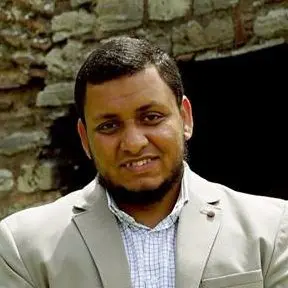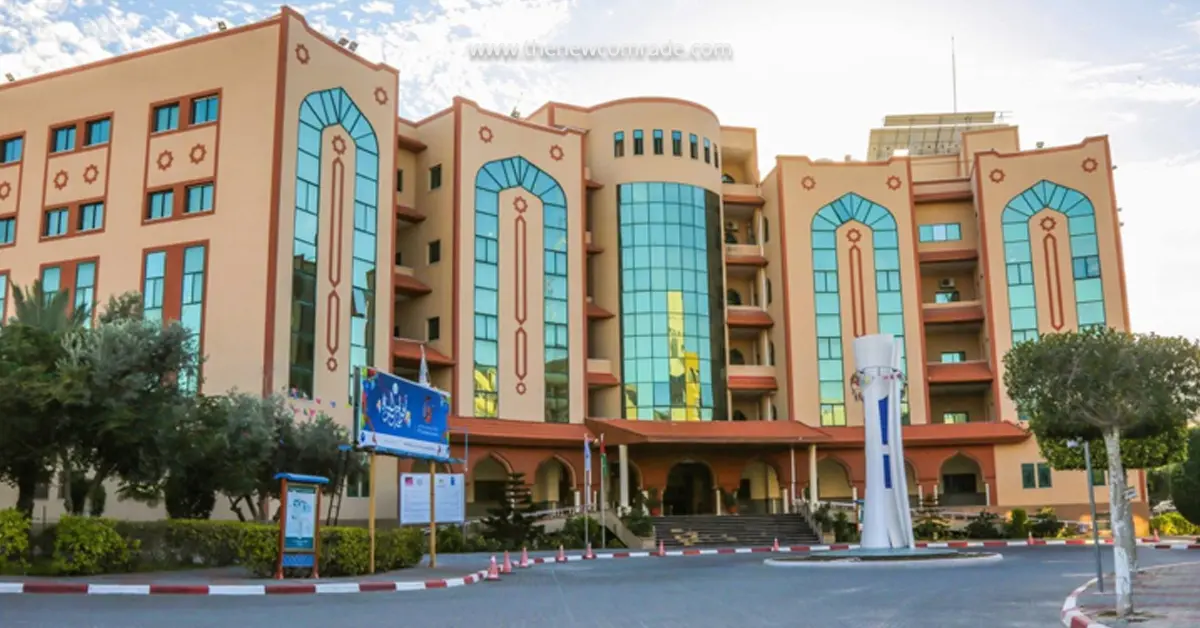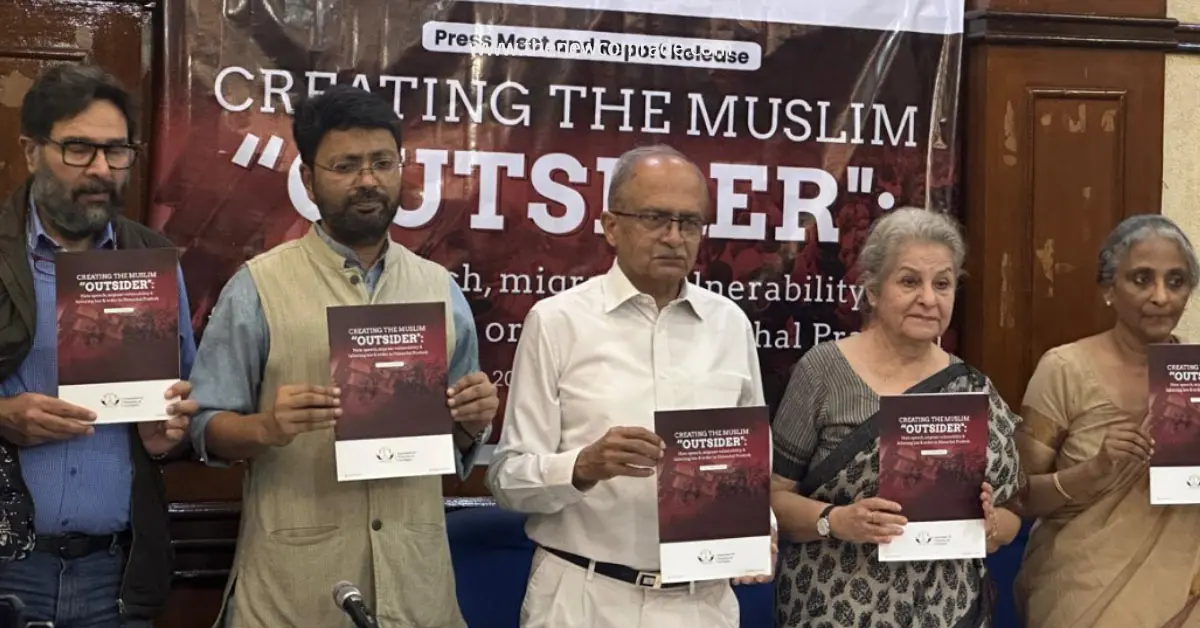A Syrian doctor, Eyad Al-As’ad, narrated story of his long captivity in the terrible Syrian prison of Tadmor – which is an icon of contemporary Arab prisons. Arab prisons are the clearest and best witness to this dark era of Arab world. Eyad Al-As’ad’s story was presented to readers in a recent novel titled “Yasma’una hasisaha (Hearing its rustling)” published by the Jordanian novelist Ayman Al-Atoum.
In this story, I believe that no conscientious reader could forget the story of Constantine Sarrouf!
Constantine Sarrouf was a Christian and a leader in the Communist Party. However, his father was of the view that Arabic language elevates its speaker. Hence, as a child he was sent to a school where he memorised Qur’an. As he grew up, he mastered Arabic language. He was eloquent, sharp-witted and had a cheerful nature and a cooperative spirit.
Since copies of Qur’an, pens and notebooks were forbidden in Syrian prisons, those prisoners who had memorised Qur’an took the task of teaching those interested in learning or revising Qur’an. There was no one in that dormitory (a big cell) who could compete with Constantine Sarrouf or even come close to him in teaching Qur’an. He would offer his services, saying: “Who wants me to teach him the Qur’an with its chain of transmission!”
While many Muslims were embarrassed to have Quran memorised by a non-Muslim, others felt forced to learn it from him due to the lack of alternatives and his competence. His most famous student was Aamer el-Za’im.
Aamer had another story. He was one of the most hardened criminals and was deep-rooted in crime. He killed, stole, committed adultery, drank and peddled drugs. However, out of zeal, he had tried to smuggle a barrel of diesel into his besieged neighbourhood to help the only bakery that provided food for starving and dying people. As such, he got accused of being a “leader” of ‘Muslim Brotherhood’ organisation in this neighbourhood and got imprisoned in Tadmor prison.
Aamer was a difficult learner and could not memorise Qur’an easily. He was not able to memorise five verses from Surah Taha (despite its verses being short) and so he started memorising two verses each time. The path began to open up for him until he completed memorising Surah Taha after eight months (which is considered a long time for this relatively easy surah, especially considering a prisoner who is mostly having free time). He may have needed to repeat the same word a hundred times for it to be correct in his tongue. With his patience, perseverance and determination, he completed memorising the entire Qur’an, at the hands of his Christian communist sheikh – Constantine Sarrouf!
Three other inmates of the dormitory interested in memorising Qur’an had objected to learning Qur’an from him over concerns of how the holy book be studied from a Christian communist. However, there was no luxury in that terrible prison for a dispute to develop – circumstances of oppression and necessity dictated that a fourth one take his lessons from him. What distinguished him from the rest of learners was that, surprisingly, he memorised the Quran in multiple ‘readings’ (qira’at), which led the narrator to believe that he was a crypto-Muslim! The mystery of Constantine Sarrouf’s belief in Islam remained unresolved until his death, as he evaded answer whenever asked, neither confirming nor denying.
He did not attend ritual prayers with those who performed that, but he used to move his lips while others were praying, as if he too was praying! Except once – when he stood next to a row in a funeral prayer for the brother of Eyad el-As’ad. Eyad’s brother was also detained in Tadmor and executed – neither of them had been able to meet one another despite being in adjacent cells.

Later, Constantine opened up another surprise to his friends – that he knew ‘Mu’allaqat’ by heart (these are long poems of pre-Islamic era, each of which exceeds a hundred verses, and is at the forefront of Arabic rhetoric). This was when he was of the age of seventy.
He used to have two daily sessions, the first after dawn until breakfast and the second from six until bedtime. He kept up with them without getting tired or bored throughout the years he spent in prison. In five years, four people had memorised the entire Qur’an at the hands of Constantine, in addition to fifty who had memorised it from him earlier. This was despite the refusal of a number of Islamicists to learn Qur’an from him – How could there be a Christian communist in their chain of transmission of learning the Holy book reaching to the Holy Prophet SAAWS and archangel Jibril AS!
Harun was a student of Constantine. He spent his last night reciting Surat al-Baqarah to his Christian sheikh by heart, until he reached the verse: (And do not say about those who are killed in the way of Allah, “They are dead.” Rather, they are alive, but you perceive [it] not). Then, a soldier knocked on the door and called his name and led him to be executed!! Constantine felt a sense of shock, because he was the one who had persuaded him to recite that portion to him that night. So, in a moment of terror and astonishment, he thought that he was responsible for choosing the moment of his death.
Another time, his student Walid was reading Surat al-Mu’minun to him. He had memorised eighteen juz’. However, as soon as Walid reached the verse: (Then indeed, after that you are to die), he stopped and could not recite beyond the verse! Walid said: “The verse tells me that death is close to me.” Few hours later, Walid’s name was called for execution! Constantine remained silent for ten days after that and did not speak to anyone.
Tadmur, beyond surrealism
High walls of cold cement
Control towers
Mine fields
Check points
Barricades and special military forces
Finally… A space of pure patriotic fear
If the whole of Syria falls
This prison will never ever fall
By Syrian poet Faraj Bayrakdar, who was in Tadmur from 1988 to 1992
Due to the unhealthy conditions of the prison, Constantine contracted typhoid fever, and began to wither and shrink, and become progressively thinner. The pain gradually consumed him until he died as the first person to be afflicted with this disease at the age of eighty. Everyone was filled with grief, but a disagreement occurred after his death – Should we pray over him or not? Then five people prayed over him, and their imam was the narrator of the story, who was believed that he was a Muslim.
It is one story among millions of stories written in the jungles of prison cells, caves of oppression, and basements of humiliation. There are many similar stories because the prisons of our countries in this era are meant for the righteous. How many scholars, jurists and learners of Qur’an and various sciences have been captivated within their walls! I did not intend by citing this story to add a new article to explain our current catastrophe and regret, but rather I intended another purpose.
Every human being is treasured with various energies, but they do not come out except under some strong urge – of desire or fear. Constantine’s father intended for his son to attain a high position in the world by teaching him Qur’an and Arabic language. His desire was so strong that it made his son an example of memorisation of Qur’an, despite his Christianity and Communism. Likewise is Aamer el Za’im’s desire to memorise despite his slow pace, his difficulty in pronunciation, and his habit of leading a life in which there was no place for Qur’an. As we are approaching the month of Ramadan, which are the days of Qur’an, in which it is recited, broadcasted and listened to a lot. It is appropriate for Muslims hoping reward of the Day of Judgment to have desire, ambition, and determination that makes him keen on Qur’an – be it memorisation, recitation, listening, understanding, publicising, etc. Indeed, this understanding and contemplation is the first purpose of the Book of Allah, for it is a book of guidance.
These days are difficult for the entire Ummah. In the far east, Muslims are being tortured in East Turkestan, and even in the west, Muslims are facing a conspiracy against their revolution in Algeria. Between the east and the west, there is a continuous spectrum of tragedies and suffering. These days are about to witness the awaited “deal of century”. Therefore, in the coming days of tribulations, Muslims have no choice but to fill himself mentally, psychologically, intellectually and spiritually with the Book of Allah Almighty. May Allah guide us with it in the darkness of tribulations, so that we do not fall out of them or go astray. It is more appropriate for a Muslim to be driven that a Christian communist man had memorised the Qur’an before him for a worldly purpose, and so did a man who was deeply rooted in crime, did not know the way to Qur’an, and even was difficult to pronounce it. These matters were not made easy for them except by the sincerity of their concern and the loftiness of their ambition.
Originally published in Al Khaleej Online
Translated by Reem Al Haddad









